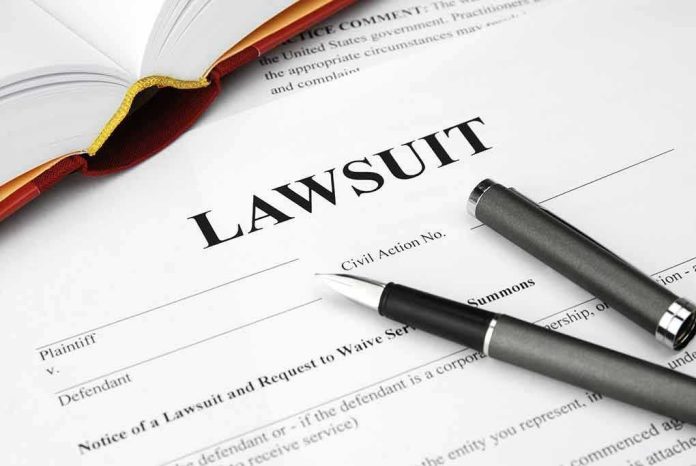
In a jaw-dropping blow to local government overreach, a federal judge just handed Michigan wineries nearly $50 million for unconstitutional zoning rules—and the ripple effects could shake local bureaucrats nationwide.
At a Glance
- Michigan wineries win $50 million after a federal judge rules Peninsula Township’s zoning ordinances unconstitutional
- Restrictions on events, music, and grape sourcing struck down as violations of constitutional rights and interstate commerce
- The ruling sets precedent, limiting local governments’ ability to override state licenses and constitutional protections
- Immediate impact expected on winery operations, local budgets, and the future of rural land use policy
Federal Judge Delivers $50 Million Wake-Up Call to Local Zoning Bullies
After years of fighting bureaucratic nonsense, nearly a dozen wineries on Michigan’s Old Mission Peninsula just watched the federal judiciary do what local politicians refused: put an end to decades of senseless, restrictive zoning ordinances. Judge Paul Maloney’s July 2025 ruling not only found Peninsula Township’s rules unconstitutional but awarded the wineries almost $50 million in damages—a sum that’s sure to send shivers down the spines of local government everywhere. For years, the township strangled winery operations with bans on events, music, and even dictated where grapes could be sourced, supposedly to “protect agricultural character.” That’s liberal-speak for “we know better than you and your business.”
Peninsula Township officials owe $50 million to Michigan wineries for trampling their rights—but they’re appealing the ruling. https://t.co/SaUVdFEfmd
— reason (@reason) July 26, 2025
The truth is, these ordinances were more about control than community benefit. Wineries, represented by the Wineries of Old Mission Peninsula (WOMP), argued that these rules crippled their businesses and flew in the face of basic economic and constitutional sense. The judge agreed, declaring that these restrictions violated both the Dormant Commerce Clause—meant to protect against discrimination in interstate commerce—and the First Amendment, which prohibits compelled speech. This is a textbook case of government busybodies running afoul of the Constitution, and for once, the system worked in favor of common sense and business freedom.
How Wineries Fought Back and Won
Wineries didn’t sit back and take it. For years, they faced arbitrary rules—no events, no music, and a requirement to buy grapes locally, as if that was the only way to be “authentic.” In 2020, WOMP and its member wineries sued Peninsula Township in federal court, arguing that the ordinances were not just bad policy, but flat-out unconstitutional. The legal battle dragged on for five long years, with the wineries forced to fight not only the township but also a citizen group called Protect the Peninsula, which was all-in on keeping government micromanagement alive and well. But the wineries persisted, knowing that backing down would mean permanent economic suffocation and a dangerous precedent for heavy-handed local rule elsewhere.
Judge Maloney’s final ruling pulled no punches. He found the ordinances illegal and awarded massive damages, making clear that local governments cannot override state-issued licenses or trample constitutional rights just because a handful of activists want to freeze time. The court’s decision immediately shifted the power dynamic, putting the township on the defensive and freeing wineries to innovate, compete, and serve customers the way every other American business should be able to do—without a government leash around its neck.
Local Bureaucracy Loses, Business and the Constitution Win
Peninsula Township officials are now scrambling to figure out their next move, reviewing the decision and mulling over an appeal, but the damage—financial and reputational—is already done. Township residents, who may have bought into the tired line about “protecting rural character,” now face the reality of a $50 million blow to their community’s budget. Meanwhile, local grape growers are bracing for increased competition, now that wineries can source grapes from wherever they please, as the free market intended.
The broader impact is undeniable. This verdict sends a clear message: local governments can’t hide behind quaint-sounding regulations when those rules stomp on the Constitution and choke local businesses. Other wine regions and agricultural communities across the country are already taking note, reviewing their own ordinances to avoid a similar legal and financial smackdown. For winery owners and anyone who cares about property rights, business freedom, and constitutional government, this ruling is a bright spot in a landscape too often darkened by bureaucratic meddling.
National Implications: A Warning Shot for Local Overreach
Legal experts and industry observers are calling this a landmark win for business rights and regulatory sanity. The Dormant Commerce Clause and First Amendment have been reinforced as shields against local governments that try to play kingmaker, especially in regulated industries like winemaking. While some land-use diehards and township loyalists grumble about “over-commercialization,” the reality is that this ruling restores basic rights and dignity to entrepreneurs who simply want to serve their customers and grow their businesses.
This is a rare but critical moment where the courts stood up for the Constitution, slapped down government overreach, and handed a victory to the people who actually build something in this country. The message is clear: local politicians, take your hands off the levers of private business, or prepare to pay a heavy price.
Sources:
Michigan Wine Collaborative: Wine Law July 2025 Edition
Traverse Ticker: Judge Awards Nearly $50M in Damages to Old Mission Wineries
UpNorthLive: Peninsula Township Ordered to Pay $50 Million to Wineries After Zoning Ordinance Ruling




